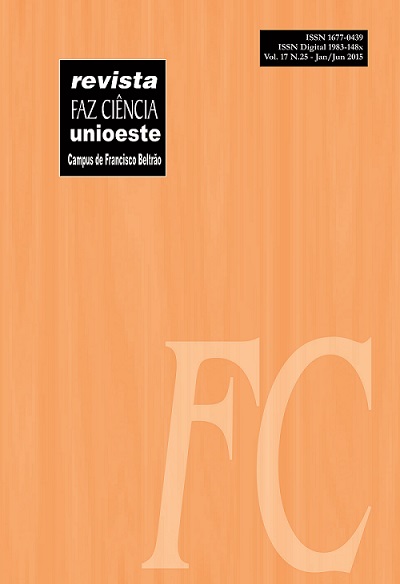BOLOGNA PROCESS AND DISCOURSE SKILLS IN THE HIGHER EDUCATION: THE TUNING LATIN AMERICA PROJECT
DOI:
https://doi.org/10.48075/rfc.v17i25.14857Keywords:
Projeto Tuning, América Latina, Pedagogia das competências, Processo de Bolonha, Universidade latino-americana.Abstract
This study discusses influences of the Bologna Process in higher education policies within the Latin America, starting to the approach of the Tuning Latin America Project and demonstrating how this reflects the logic of pedagogy skills. The method adopted is the bibliographical and documentary research of the qualitative approach. Broadly, the study considers the current phase of capitalism, named flexible accumulation, and the relationship of higher education with the notion of knowledge society. The Bologna Process, in this context, emerged as a public policy inserted in the European Union, aiming to end the expansion of competitive advantage of the block in terms of higher education and internationalization of their modus operandi. As an example, there is the Tuning Project applied to Latin America, it was seeking alignment with the guidelines of Bologna,it acted as a methodology to match and compare the university education, with a view to a possible globalization of curricula and the world-standardized training, it was using to the pedagogy skills.Downloads
Published
01-01-2000
How to Cite
MARTINS, T. C.; SILVA, A. F. da. BOLOGNA PROCESS AND DISCOURSE SKILLS IN THE HIGHER EDUCATION: THE TUNING LATIN AMERICA PROJECT. Revista Faz Ciência, [S. l.], v. 17, n. 25, p. 22, 2000. DOI: 10.48075/rfc.v17i25.14857. Disponível em: https://saber.unioeste.br/index.php/fazciencia/article/view/14857. Acesso em: 4 jul. 2025.
Issue
Section
Dossiê Projeto Alfa III
License
Aviso de Direito Autoral Creative Commons
Política para Periódicos de Acesso Livre
Autores que publicam nesta revista concordam com os seguintes termos:
1. Autores mantém os direitos autorais e concedem à revista o direito de primeira publicação, com o trabalho simultaneamente licenciado sob a Licença Creative Commons Attribution que permite o compartilhamento do trabalho com reconhecimento da autoria e publicação inicial nesta revista.2. Autores têm autorização para assumir contratos adicionais separadamente, para distribuição não-exclusiva da versão do trabalho publicada nesta revista (ex.: publicar em repositório institucional ou como capítulo de livro), com reconhecimento de autoria e publicação inicial nesta revista.
3. Autores têm permissão e são estimulados a publicar e distribuir seu trabalho online (ex.: em repositórios institucionais ou na sua página pessoal) a qualquer ponto antes ou durante o processo editorial, já que isso pode gerar alterações produtivas, bem como aumentar o impacto e a citação do trabalho publicado (Veja O Efeito do Acesso Livre).
Licença Creative Commons
Esta obra está licenciada com uma Licença Creative Commons Atribuição-NãoComercial-CompartilhaIgual 4.0 Internacional, o que permite compartilhar, copiar, distribuir, exibir, reproduzir, a totalidade ou partes desde que não tenha objetivo comercial e sejam citados os autores e a fonte.


